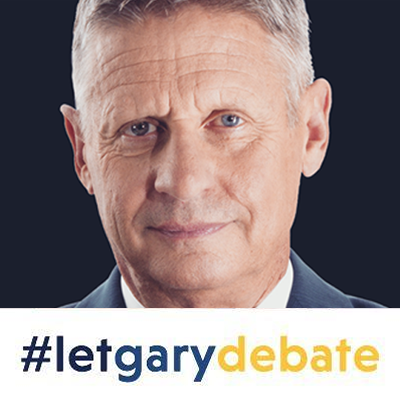Foreign Policy Magazine Sees Through the Gaffes to Gary Johnson's Smart, Popular Foreign Policy Vision
Libertarian Party presidential hopeful Gov. Gary Johnson may seem less than erudite when specific targeted questions about foreign hotspots and foreign leaders are dropped on him on live TV. Still, he has an overall foreign policy vision that has impressed even the foreign policy mavens at Foreign Policy magazine.

There, Emma Ashford provides some useful context on Johnson's foreign policy acumen, focusing not on minutia but on the importance of principles.
She first points out, as Anthony L. Fisher did first here at Reason, that Johnson is far from unique in making ignorant-sounding gaffes about foreign policy. And Ashford notes that:
the foreign-policy approach offered by the Johnson-Weld campaign is not only a compelling alternative to the current orthodoxy, but is increasingly popular among Americans. A more restrained approach to foreign policy would see the United States involved in fewer unnecessary conflicts around the world, and a much stronger emphasis on diplomacy and other non-military solutions to global problems.
In contrast to Clinton's liberal interventionist approach, it would avoid getting bogged down in civil wars like Libya and Syria. In contrast to Trump's curiously aggressive isolationism, a restrained foreign policy sees trade as a positive, security-enhancing factor.
She's exactly right that that is what an intelligent, balanced outside observer should understand and consider about the Libertarian foreign policy option. But she is also right that the salesmen the Party picked need to up their game:
in order to make a coherent case for restraint in America's foreign policy, you have to explain why it will work better. Johnson, it turns out, is generally correct in his approach to Syria: U.S. intervention to alleviate suffering, in Aleppo or elsewhere, is unlikely to work and may well make the situation worse. ….But without knowledge of detail, he struggles to explain why.
Ashford pulls together some of the facts showing that, rather than a punchline, Libertarian foreign policy should be a great political selling point:
Polling throughout the election campaign suggests that many of these ideas resonate with voters. In one recent Chicago Council survey, only 27 percent of Americans believed that the United States does too little around the world, while 41 percent of respondents think the United States does too much. More than half of respondents think that other countries should solve their own problems rather than relying on the United States."
Indeed, it's likely that some of Johnson's strongest bases of support come from his foreign policy leanings. Polls show that 36 percent of active-duty troops, many of whom have witnessed first-hand the foreign policy follies of the last decade, intend to vote for Gary Johnson, while 29 percent of millennials — a generation with a strong tendencies towards restraint — are planning to vote for him.
The Foreign Policy writer's takeaway for Johnson is similar to Matt Welch's here: that he has a powerful and resonant foreign policy message, and should try harder in the future to not give opponents or the general public a cheap, easy reason to doubt that.


Show Comments (113)